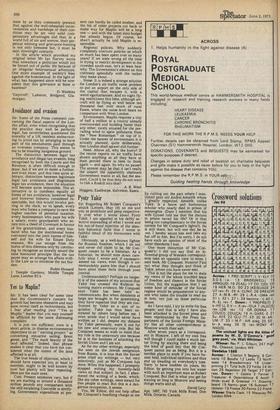Avoidance and evasion
Sir: Some of the Press comment concerning the fiscal aspects of the Lonrho affair, even when recognising that the practice may well be perfectly legal, has nevertheless questioned the morality of a UK resident endeavouring to avoid tax by arranging to have part of his emoluments paid through an overseas company. This seems to me to be treading dangerous ground.
The distinction between legal tax avoidance and illegal tax evasion, long recognised by both the Courts and the Revenue, is often difficult enough to draw, but if we are to make a further, and even nicer, and this time quite arbitrary, distinction between legitimate legal tax avoidance and illegitimate legal tax avoidance, then the situation will become quite impossible. The alternative is to condemn equally all forms of tax avoidance, however legal and however hitherto considered respectable, but this would involve putting in the dock, so to speak, every man who forms a company to save the higher reaches of personal taxation, every businessman who pays his wife a salary, every grandparent who enters into a Deed of Covenant in favour of his grandchildren, and every husband who has the matrimonal home conveyed into the joint names of himself and his wife for Estate Duty reasons. We can escape from the horns of this dilemma only by continuing to recognise as morally sound the time honoured principle that the tax payer may so arrange his affairs within the Law as to minimise the tax burden.
Robin Howard 1 Temple Gardens, Middle Temple Lane, London EC4.


































 Previous page
Previous page